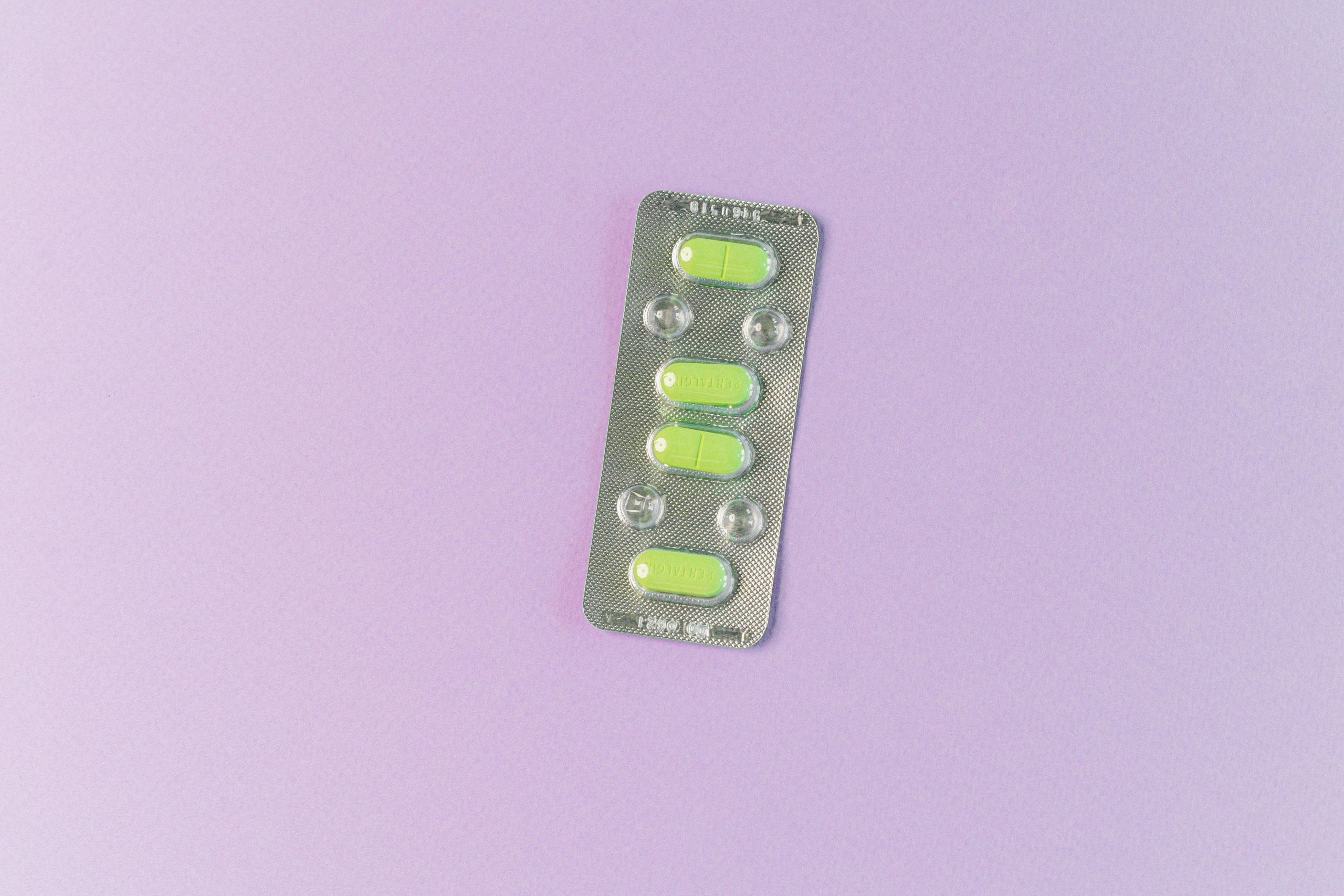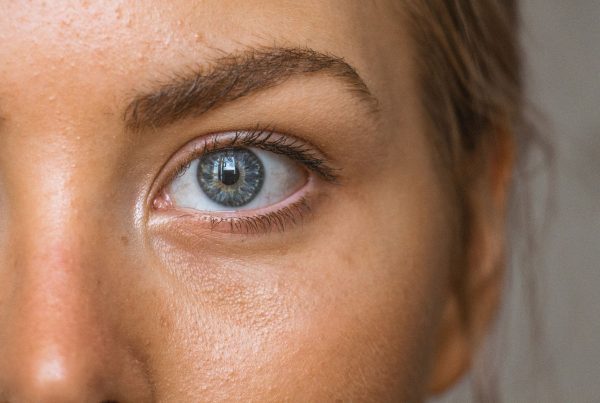As of 2023, around 11.4% of adults were taking prescribed medications for depression [1]. With this being a significant proportion of the overall population of the United States, many people consider the interactions and side effects of antidepressant drugs to be important aspects of both their mental and physical health. This makes it more pertinent, especially in the current time of year and changing climate, that people are aware of how their medications impact their body’s ability to manage heat. While it may not seem as if temperature is a very important factor when it comes to psychiatric treatments, heat can be a key factor in the ability of the body to metabolize drugs. Not only do some drugs work less effectively at higher temperatures, whether because their active ingredients break down or they are less easily stored, some medications can lower an individual’s overall tolerance of heat [2]. While topical medications seem like the most likely culprit, since they may increase direct skin sensitivity to the sun in the case of some antifungal or antibiotic ointments, oral medications are still able to interfere with thermoregulation. Of particular note, antidepressants, as well as some antipsychotics and stimulant medications, such as those used for ADHD, have also been found to impact the threshold of heat tolerance [3]. Not only does this happen by limiting thermoregulation, some research suggests psychotropic drugs can alter an individual’s self-perception of their own temperature. As a result, it may be more difficult to tell when extreme heat is causing a serious reaction, especially if someone may be taking multiple medications that have this effect.
Given that the most commonly prescribed antidepressant medications are selective serotonin reuptake inhibitors (SSRIs) such as fluoxetine (Prozac), sertaline (Zoloft), and escitalopram (Lexapro) [4], the unique risk of serotonin syndrome is an additional factor to consider, in relation to heat. When someone increases their dosage of a medication, like an SSRI, or takes multiple medications that can increase serotonin levels in the brain, there is a risk of having too much serotonin activation in the central nervous system. This can lead to serotonin syndrome, which often presents with symptoms like high heart rate and respiratory rate, sweating, fever, confusion, and agitation [5]. All of these symptoms may be worsened by extreme heat exposure, which may also mean that an individual encountering serotonin syndrome in a high-temperature environment may misconstrue the two or delay seeking help for the former. All of this in tandem makes heat a more significant consideration for people taking antidepressants.
 [12]
[12]
Who is at risk?
As the head of the emergency department at UVA Health, Dr. Andrew Muck has unique insights into the impacts of heat waves on emergencies related to antidepressants. The factors that he reports have the most impact on antidepressant-related overheating are taking more than one kind of antidepressant at a time, higher age due to the body’s decreased ability to counteract for heat over time, taking high doses of certain classes of antidepressants, namely tricyclics like Norpramin that can impact UV protection, and taking other simultaneous prescriptions with heat-related effects [6].
Several different kinds of drugs can do this, increasing vulnerability to heat-related emergencies, especially in an individual already on an antidepressant [7]. For example, diuretics, often used to treat high blood pressure or water retention, tend to lead to more rapid urine production and fluid loss, potentially exacerbating dehydration risk. Certain types of diuretics also increase risk of light sensitivity. Anticholinergic drugs, which inhibit the neurotransmitter acetylcholine, responsible for involuntary muscle activity (e.g. the smooth muscles of the digestive or urinary tract), can reduce sweat production by making sweat glands less active. With less sweat production, the body is less effective at cooling itself off at high temperatures. Beta blockers, the subject of a previous article, in lowering heart rate, often limit the body’s ability to circulate blood efficiently enough to allow for optimal cooling. Evidently, there are many different types of drugs that can amplify the heat-specific effects of antidepressant medication. If you or a loved one are taking antidepressants, it may be worthwhile to see how your other prescriptions may affect overall heat sensitivity. Being proactive and talking to a doctor about any concerns about heat-related symptoms can help avoid emergencies, especially if you are worried about side effects that have become more challenging in the summer months. As Dr. Shah puts it: “The key is to be aware, know the potential side effects of the medications you are taking and don’t hesitate to ask your healthcare provider questions about staying safe in the heat or sun. Never discontinue a medication without speaking to your doctor” [8].
Why does this happen?
With this in mind, some might be curious why antidepressants, used to treat mood disorders, even have this kind of systemic impact. There can be several physiological drivers for this. Not only can medications impede thermoreceptors within smooth muscle and the skin [8], the part of the brain that controls temperature regulation, the hypothalamus, is directly impacted when taking certain antidepressants, due to the increased serotonin levels. The hypothalamus triggers multiple pathways to keep temperature from being too high or too low: sweating, thirst, and heat production [9]. When these mechanisms become dysregulated, someone may encounter too much sweating, which can add to fluid loss and increase risk of dehydration, or too little sweating, which can reduce the ability to cool off high body temperature through evaporation. Some antidepressants, bupropion for example, trigger the hypothalamus to make the body burn more energy, impacting overall metabolic rate even if the temperature is already high. Based on detected levels of sodium in the body, the hypothalamus can trigger feelings of thirst. When antidepressants interfere with this function, dehydration and electrolyte imbalance can result.
In addition to these medical and physiological factors that can impact risk of heat complications, there are clear social and economic determinants that impact who is most at risk. Those who work jobs outside, who are dealing with unstable housing, who live in neighborhoods where cool public spaces may not be safe or accessible, who deal with preexisting cardiorespiratory, renal, endocrine, or psychiatric health issues all may be disproportionately at risk, according to one review study [10]. Among many racial and economic associations, the urban heat island effect is suggested to be one of the mediators between neighborhood factors. This is what happens when natural surfaces (i.e. grass or soil) are replaced by human structures that tend to trap more heat than they reflect [11]. The design of urban areas with heat in mind can look like adding vegetation for shade and temperature regulation through the evaporative cooling of water from leaves, organizing buildings to reduce heat trapping, as well as using more reflective surfaces and paint for construction. As a result, heat complications while taking mental health medications becomes a community issue, rather than simply an individual one. It is important to raise awareness and education about the signs of a heat emergency.
What can you and your community do?
As an individual, making a heat plan can be a helpful approach to preventing heat-related emergencies. Routine steps like checking the forecast for heat and humidity, staying hydrated, dressing in light and loose clothes, using safe sunscreens with SPF to protect from ultraviolet rays, and trying to stay indoors, and avoiding direct sun exposure when possible can be especially protective in the summer months. However, for many, it may be worthwhile to consult a physician about adjusting dosage on an antidepressant if those precautionary measures are not possible [12]. Finding a balance that is safe and works for your lifestyle and socioeconomic limitations is essential in making sure your treatment plan is flexible and sustainable for the long run. As far as community efforts, knowing where local heat shelters and cooling spaces are located is a first step in knowing how to respond if someone is unhoused or has had prolonged exposure to heat as a result of housing instability. Starting or locating a community fridge, stocked with items like cold water bottles or electrolyte drinks, can be a helpful way of getting people involved in service in a way that offers resources to better manage heat. Spreading awareness and knowing the signs of heat stroke and heat exhaustion can be instrumental if you encounter someone facing them. In an article, written by Kelli Hansen, RN, CMCN, CSA, CDP, the symptoms and responses for each are clearly organized [13]. One of the key ways to differentiate would be the individual’s sweating, since typically heat stroke does not present with the same heavy sweating that heat exhaustion does. Following some of the simple measures below can be pivotal in a heat-related emergency, especially for those at higher risk due to medications or environmental factors.

Sources
-
https://www.cdc.gov/nchs/products/databriefs/db528.htm#section_1
-
https://www.cdc.gov/heat-health/hcp/clinical-guidance/heat-and-medications-guidance-for-clinicians.html
-
https://library.samhsa.gov/sites/default/files/pep23-01-01-001.pdf
-
https://magazine.medlineplus.gov/article/commonly-prescribed-antidepressants-and-how-they-work
-
https://pmc.ncbi.nlm.nih.gov/articles/PMC10883429/
-
https://blog.uvahealth.com/2024/07/19/antidepressants-make-you-overheat-heat-intolerance-qa/
-
https://www.houstonmethodist.org/blog/articles/2024/jun/medications-that-dont-mix-well-with-the-sun-or-heat/#
-
https://www.medicalnewstoday.com/articles/antidepressants-and-heat#.
-
https://mednews.hofstra.edu/2024/07/02/patients-on-antidepressants-need-to-stay-safe-in-the-heat/#
-
https://pmc.ncbi.nlm.nih.gov/articles/PMC4264980/
-
https://climate.mit.edu/explainers/urban-heat-islands#:~:text=
-
https://www.psychologytoday.com/nz/blog/the-sensory-revolution/202406/antidepressants-and-heat-stroke-risk-what-you-need-to-know#
-
https://www.healthline.com/health/heat-stroke-vs-heat-exhaustion#symptoms







